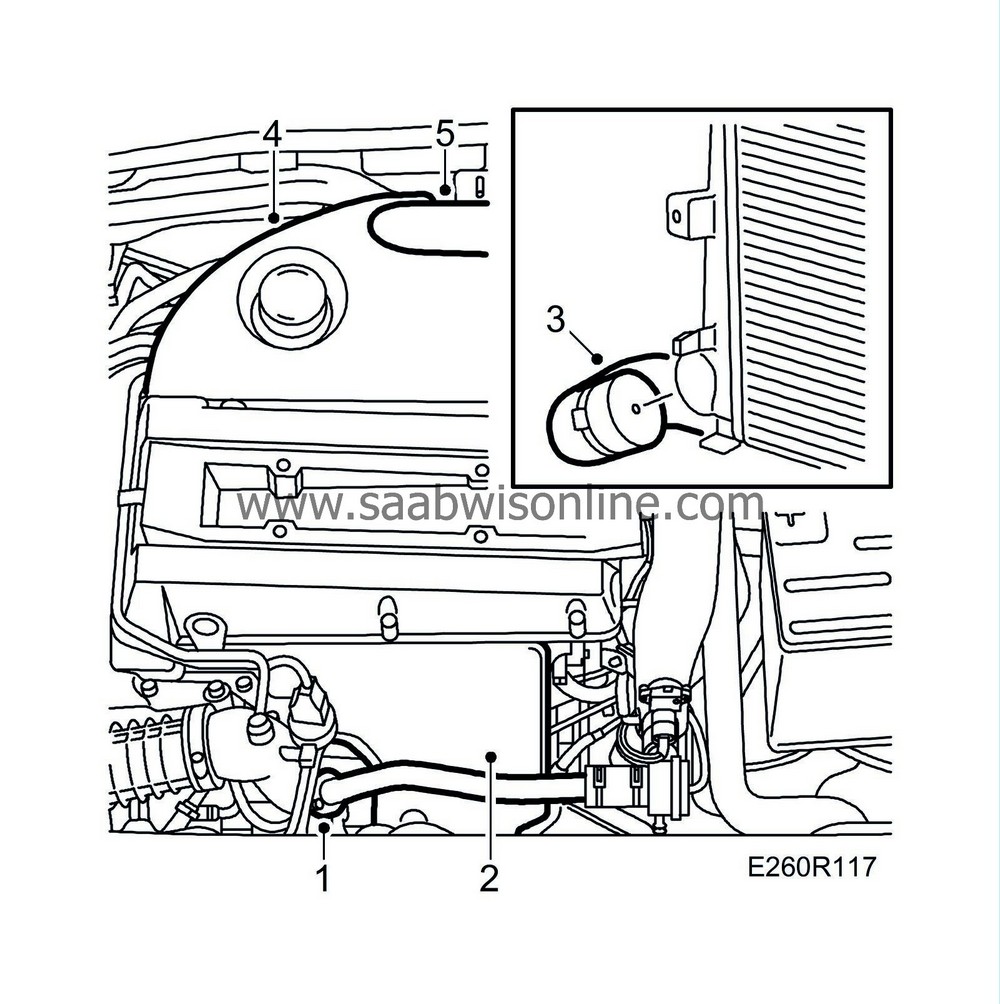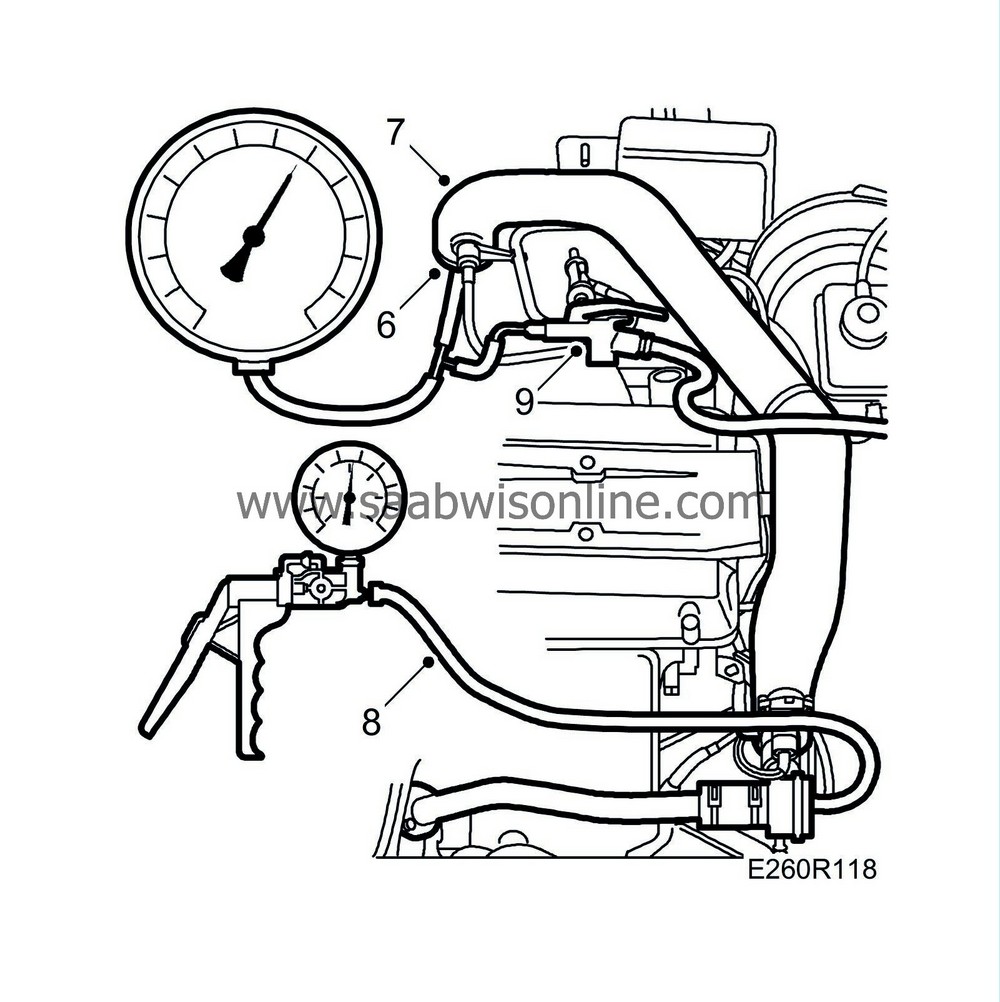Test pressurisation of the charge air cooler and pressure pipes, 4-cyl.
|
|
Test pressurisation of the charge air cooler and pressure pipes, 4-cyl.
|
|
1.
|
Remove the bypass pipe.

|
Note
|
|
There is an O-ring on the bypass pipe attachment to the turbo intake pipe.
|
|
|
2.
|
Remove the exhaust manifold heat shield. The heat shield is attached with a nut and two clips underneath.
|
|
4.
|
Remove the engine cover.
|
|
5.
|
Detach the air pipe from the throttle body. Remove the hose elbow.
|
|
6.
|
Fit a section of hose with an inside diameter of 50 mm and a length of 50 mm on the pipe.

|
|
8.
|
Connect pressure/vacuum pump
30 14 883 Pressure/vacuum pump
to the bypass valve. Generate a pressure of approx. 1 bar.
|
Important
|
|
Be extremely careful when pressurising the turbo system. Excessive pressure may damage hoses and connections.
|
|
|
|
|
10.
|
Make sure that the pressure does not drop by more than 0.1 bar in 30 seconds. If the pressure drop is greater than this or if there is an audible hissing sound, check hoses, pipes and connections for leaks.
|
|
11.
|
Check the hoses/pipe and compressed air gun for leaks using leak detection fluid, part No. 30 20 385 or similar.
|
|
12.
|
If no leak is found in the hoses or pipes, carry out test pressurisation on the removed charge air cooler.
|
|
14.
|
Fit the inlet and outlet hoses on the charge air cooler and plug one of the hoses. Connect the pressure measuring equipment to the other hose.

|
|
15.
|
Connect a compressed air gun to the pressure gauge and carefully build up a pressure of about 1 bar.
|
|
16.
|
Check that the pressure does not fall by more than 0.1 bar in 30 seconds. If the pressure drop is greater than this or a hissing sound is heard, check the hoses, pipes and connections for leaks. Use leak detection fluid, part no. 30 20 385, or similar.
|
|
Note
|
|
Fit new O-rings greased with non-acidic Vaseline.
|
|
Spray the connectors with Kontakt 61 contact cleaner, part No. 30 04 520.
|
|
Coat the studs with Molycote 1000, part no. 30 20 971, or similar.
|
|
Important
|
|
To reduce the risk of hoses mounted on the delivery side of the turbocharger coming loose due to low friction at high air pressure, the hoses and connecting pieces must be cleaned thoroughly before fitting. Use a rag dampened with 93 160 907 Motip Dupli cleaning agent to wipe clean inside the ends of the hoses. Clean the connecting pieces as well. If hose clips are rusty or damaged, they must be replaced so the correct clamping force is maintained.
|
|
|
Fit in reverse order.
Tightening torques:
Bypass pipe/intake pipe, bolt 8 Nm (6 lbf ft)
Bypass pipe, hose clip 8 Nm (6 lbf ft)
Lock nut, heat shield:
20 Nm (15 lbf ft) (up to and including engine no. 7011078)
21 Nm (16 lbf ft) (from and including engine no. 7011079)





